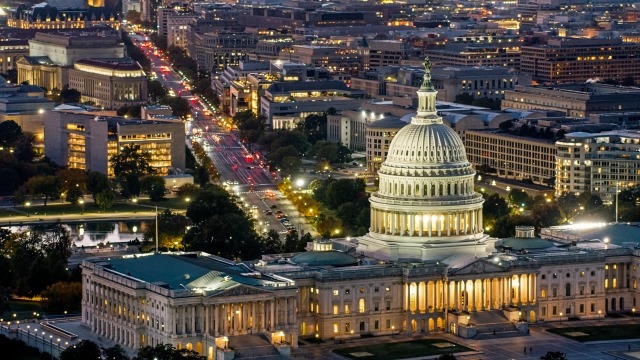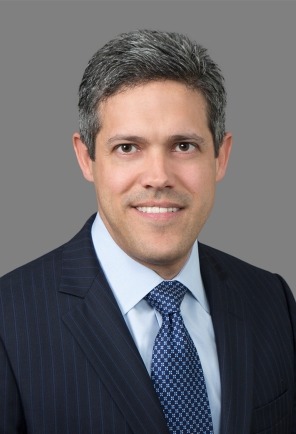A New York State of Mind: Mind Your Residency
2013-Issue 29—New York's statutory resident rules have long been a source of contention between nonresident taxpayers and the Department of Taxation and Finance. A case decided late last year, In the Matter of John Gaied v. New York State Tax Appeals Tribunal, has fanned the flames surrounding the Department's interpretation and application of the "permanent place of abode" rules of statutory residency. (957 N.Y.S.2d. 480 (App. Div. 2012))
This edition of Tax Advisor Weekly provides an overview of New York State's statutory resident rules, including an analysis of the recent Gaied decision and administrative guidance from the Department on what is meant by the term "permanent place of abode."
The Importance of the Issue
The issue of whether an individual is a resident or a nonresident is of critical importance. Individuals can have only one domicile - typically, the state in which they maintain their closest contacts (e.g., immediate family, driver's license, abode, bank and investment accounts, car registration, doctors, country club memberships and the like). The state of domicile has the right to tax individuals on 100 percent of their income. If, however, another state can claim the individuals as statutory residents, the individuals might be subject to tax on more than 100 percent of their income.
New York's Statutory Resident Rules — Permanent Place of Abode
Under New York law, an individual is generally subject to tax as a resident if the individual is domiciled in New York or if the individual spends more than 183 days during the taxable year in New York and maintains a "permanent place of abode" in the state. (N.Y. Tax Law § 605(b)(1) (Consol. 2013); N.Y. Comp. Codes R. & Regs. tit. 20, § 105.20(a) (2013)) A "permanent place of abode" means a dwelling place of a permanent nature maintained by the taxpayer for substantially all of the tax year, whether or not owned by the taxpayer, and generally includes a dwelling place owned or leased by the taxpayer's spouse. (N.Y. Comp. Codes R. & Regs. tit. 20, § 105.20(e)(1) (2013)) A permanent place of abode will not include a property that is suitable and used only for vacations or a property that does not contain facilities normally found in a dwelling — i.e., facilities for cooking, bathing, etc. A dwelling place maintained by a full-time student enrolled at an institution of higher education in an undergraduate degree program and occupied by the student while attending the institution is not a permanent place of abode with respect to that student.
Maintaining a permanent place of abode means doing whatever is necessary to continue living arrangements in the property. While this typically means owning or leasing the property, maintenance can also mean making contributions to the household in the form of money, services or other contributions, regardless of whether the property is owned or leased by the contributing party.
Gaied Decision
John Gaied was a resident of New Jersey who commuted daily into Staten Island for work at an auto repair shop that he owned. Gaied purchased a multi-unit apartment building near his business in Staten Island as an investment property. A short time after the purchase, his elderly parents moved into one of the building's apartments. Both parents were ailing and had no source of income, so Gaied paid all of the utilities and other living expenses for his parents while they resided in the apartment. The parents occasionally would ask Gaied to stay overnight, and since he had no room or bed of his own in the apartment, he slept on the couch on those occasions. At all other times during the relevant tax years, the taxpayer resided at his home in New Jersey. The Department of Taxation and Finance determined that Gaied was maintaining a permanent place of abode at the Staten Island apartment occupied by his parents and assessed tax against him as a New York resident.
When the case was first heard in July 2010 by the Tax Appeals Tribunal, the Tribunal reversed the earlier determination of an administrative law judge and held that the taxpayer had not established a permanent place of abode in New York. The Tribunal cited its ruling In the Matter of John Evans v. Tax Appeals Tribunal of the State of New York et. al., holding that "the physical attributes of an abode, as well as its use by a taxpayer, are determining factors in defining whether it is considered permanent." (606 N.Y.S.2d.404 (App. Div. 1993)) The facts that the taxpayer did not have a bed or a room in his parent's apartment, did not keep personal belongings there and stayed only when required because of his father's poor health were relied upon by the Tribunal in determining that the apartment was not a "permanent" abode of the taxpayer.
In a surprising twist, the Department submitted a motion for reargument on the grounds that neither the statutes nor the regulations nor the controlling case law require that a taxpayer actually live at the subject property for it to be considered a permanent place of abode. The Tribunal granted the motion for reargument and reversed its earlier decision, holding that "where a taxpayer has a property right to the subject premises, it is neither necessary nor appropriate to look beyond the physical aspects of the dwelling place to inquire into the taxpayer's subjective use of the premises." In other words, the statutory requirement is "maintain," not dwell. (In the Matter of John Gaied, DTA No. 821727 (N.Y.S. Tax App. Trib., June 16, 2011))
The taxpayer appealed the Tribunal's decision, and in December of last year, the Appellate Division affirmed the Tribunal's determination, holding that although "a contrary conclusion would have been reasonable based upon the evidence presented, we are constrained to confirm, since our review is limited and the Tribunal's determination is amply supported by the record." (In the Matter of John Gaied v. N.Y. Tax App. Trib., 957 N.Y.S.2d. 480 (App. Div. 2012))
While the Appellate Division upheld the Tribunal's ruling, it did not affirm the Tribunal's conclusion that ownership and maintenance alone are sufficient to establish a permanent place of abode. Furthermore, two of the five judges dissented, pointing out that the purpose behind the statutory residence provision is to tax those who really are for all intents and purposes residents of the state, calling the majority's decision "irrational and unreasonable." The dissent by two of the Appellate Division justices allows the taxpayer to appeal the decision to the New York Court of Appeals.
The taxpayer's counsel has filed a Notice of Appeal and is currently awaiting action on the case by the Court of Appeals. A determination from the Court of Appeals will hopefully provide more clarity on the permanent place of abode requirement of the statutory residency rules.
Recent Administrative Guidance from the Department
In New York State Department of Taxation and Finance Advisory Opinion No. TSB-A-12(4)I (Aug. 28, 2012), the Department addressed whether a petitioner's interest in a private, member-owned residential club in New York City qualified as "maintaining a permanent place of abode" for purposes of determining New York State residency for New York income tax purposes. The Department concluded that the petitioner was not "maintaining a permanent place of abode" in New York solely by reason of his interest in the club.
The Department examined several factors and circumstances that have previously been held by the courts to be relevant in determining whether a person has established a "permanent place of abode" in New York. Such factors include, but are not limited to:
(i) Free and continuous access to the dwelling;
(ii) Contribution to household expenses;
(iii) Provision of furnishings or personal effects; and
(iv) Regular use of the dwelling as convenient access to and from place of employment.
In reaching its conclusion, the Department cited several Tax Appeals Tribunal decisions regarding the permanent place of abode requirement. In the Evans case (also cited by the Tribunal in Gaied), the Appellate Division affirmed the Tribunal's determination that the taxpayer's use of a room in a rectory constituted maintenance of a permanent place of abode because the taxpayer contributed to the household expenses, kept personal belongings and received guests there, had exclusive use of his room and unlimited access to other rooms on the property, and used the residence as a convenient access to his full-time job.
In the Matter of the Petition of Leon Moed, the Tribunal determined that the taxpayer was not maintaining a permanent place of abode at his wife's New York City apartment after their marital separation because he did not have free and continuous access to the property. (CTA No. 810997 (N.Y. Tax App. Trib., Jan. 26, 1995)) The wife paid all the expenses on the apartment during the years at issue. Neither the taxpayer's occasional overnight use of the apartment nor the taxpayer's informal separation agreement to pay money to his spouse was sufficient evidence that a permanent place of abode had been established.
The Tribunal's conclusion in Gaied that when a property right exists "it is neither necessary nor appropriate to look beyond the physical aspects of the dwelling place to inquire into the taxpayer's subjective use of the premises" appears to be inconsistent with the Department's position in TSB-A-12(4)I and prior Tribunal decisions that held that the taxpayer's use of the premises is indeed relevant in determining whether a permanent place of abode has been established.
Alvarez & Marsal Taxand Says:
In light of Gaied and the Department's current focus on residency audits, nonresident New York income tax filers should re-examine the extent of their contacts with the state to determine if they are at risk of being classified as a statutory resident. Individuals with the following fact patterns should pay special attention:
- Individuals who live outside New York and currently own or are considering purchasing investment or vacation property in New York;
- Individuals who live outside New York and own or lease property in New York that is occupied by family members; and
- Commuters who work in New York and live out of state and who have access to a dwelling located in the state.
All residency cases are fact-specific, so it is imperative that taxpayers keep a detailed account of their travel records and contacts with the state.
Disclaimer
As provided in Treasury Department Circular 230, this publication is not intended or written by Alvarez & Marsal Taxand, LLC, (or any Taxand member firm) to be used, and cannot be used, by a client or any other person or entity for the purpose of avoiding tax penalties that may be imposed on any taxpayer.
The information contained herein is of a general nature and based on authorities that are subject to change. Readers are reminded that they should not consider this publication to be a recommendation to undertake any tax position, nor consider the information contained herein to be complete. Before any item or treatment is reported or excluded from reporting on tax returns, financial statements or any other document, for any reason, readers should thoroughly evaluate their specific facts and circumstances, and obtain the advice and assistance of qualified tax advisors. The information reported in this publication may not continue to apply to a reader's situation as a result of changing laws and associated authoritative literature, and readers are reminded to consult with their tax or other professional advisors before determining if any information contained herein remains applicable to their facts and circumstances.
About Alvarez & Marsal Taxand
Alvarez & Marsal Taxand, an affiliate of Alvarez & Marsal (A&M), a leading global professional services firm, is an independent tax group made up of experienced tax professionals dedicated to providing customized tax advice to clients and investors across a broad range of industries. Its professionals extend A&M's commitment to offering clients a choice in advisors who are free from audit-based conflicts of interest, and bring an unyielding commitment to delivering responsive client service. A&M Taxand has offices in major metropolitan markets throughout the US., and serves the U.K. from its base in London.Alvarez & Marsal Taxand is a founder of Taxand, the world's largest independent tax organization, which provides high quality, integrated tax advice worldwide. Taxand professionals, including almost 400 partners and more than 2,000 advisors in nearly 50 countries, grasp both the fine points of tax and the broader strategic implications, helping you mitigate risk, manage your tax burden and drive the performance of your business.
To learn more, visit www.alvarezandmarsal.com or www.taxand.com



